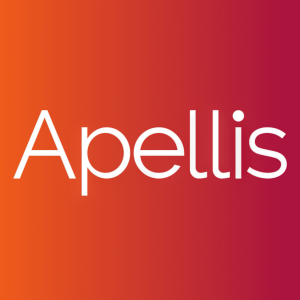New One-Year Data Reinforcing the Robust and Sustained Efficacy of EMPAVELI® (pegcetacoplan) in C3G and Primary IC-MPGN to be Presented at ASN Kidney Week
Rhea-AI Summary
Apellis Pharmaceuticals (NASDAQ: APLS) announced new one-year Phase 3 VALIANT data for EMPAVELI (pegcetacoplan) in C3 glomerulopathy (C3G) and primary IC-MPGN presented at ASN Kidney Week on October 20, 2025. Key results: EMPAVELI sustained a 68% proteinuria reduction versus placebo (p<0.0001) at one year, with consistent effects irrespective of immunosuppressant use or baseline proteinuria. One-third of treated patients achieved complete proteinuria remission (UPCR ≤0.5 g/g) versus 3% on placebo at Week 26, maintained through one year. EMPAVELI stabilized eGFR and showed a safety profile consistent with prior data. Two anchored indirect treatment comparisons indicated EMPAVELI was superior to iptacopan on multiple proteinuria and composite renal endpoints, with noted methodological limitations for ITCs.
Positive
- Proteinuria -68% versus placebo at one year (p<0.0001)
- 33% remission (UPCR ≤0.5 g/g) sustained through one year
- eGFR stabilization maintained over 52 weeks
- No new safety signals; tolerability consistent with established profile
- Indirect comparisons show superiority vs iptacopan on UPCR and composite renal endpoint
Negative
- Indirect treatment comparisons are not head-to-head and may leave residual confounding
- ITC limitations include differences in route, schedule, and dosing between trials
News Market Reaction
On the day this news was published, APLS gained 10.40%, reflecting a significant positive market reaction. Argus tracked a peak move of +7.7% during that session. Our momentum scanner triggered 41 alerts that day, indicating elevated trading interest and price volatility. This price movement added approximately $339M to the company's valuation, bringing the market cap to $3.59B at that time.
Data tracked by StockTitan Argus on the day of publication.
- Significant proteinuria reduction maintained at one year, regardless of immunosuppressant use or baseline proteinuria levels
- Complete proteinuria remission (UPCR ≤0.5 g/g) achieved in one-third of patients and sustained through one year
- Two indirect treatment comparisons indicate that EMPAVELI was superior to iptacopan in reducing proteinuria and achieving the composite renal endpoint in patients with C3G
WALTHAM, Mass., Oct. 20, 2025 (GLOBE NEWSWIRE) -- Apellis Pharmaceuticals, Inc. (Nasdaq: APLS) today announced new data from the open-label period of the Phase 3 VALIANT study that reinforce the robust and sustained efficacy of EMPAVELI® (pegcetacoplan), a C3 inhibitor, in patients with C3 glomerulopathy (C3G) and primary immune complex membranoproliferative glomerulonephritis (IC-MPGN), rare and debilitating kidney diseases.
Among seven EMPAVELI presentations at the upcoming American Society of Nephrology (ASN) Kidney Week, the new results build on previous data showing durable reductions in proteinuria and stable kidney function over one year with EMPAVELI.
“These results further reinforce EMPAVELI’s ability to deliver meaningful, lasting benefits for patients with C3G and primary IC-MPGN, with consistent efficacy across patient groups,” said Peter Hillmen, M.B. Ch.B., Ph.D., chief medical advisor, rare disease, Apellis. “As the only approved treatment for C3G and primary IC-MPGN in patients 12 years and older, EMPAVELI has the potential to transform care for people living with these rare diseases, who have a high risk of kidney failure.”
New One-Year Phase 3 VALIANT Data Reinforce EMPAVELI’s Robust and Sustained Treatment Effect
- Maintained proteinuria reduction regardless of immunosuppressant use or baseline proteinuria levels: Through one year, EMPAVELI sustained the significant
68% proteinuria reduction versus placebo (p<0.0001) achieved at Week 26, with consistent efficacy in patients who were or were not taking immunosuppressants and independent of baseline proteinuria levels. - Complete proteinuria remission achieved in one-third of patients and sustained through one year: One-third of EMPAVELI-treated patients achieved complete proteinuria remission (urine protein-to-creatinine ratio [UPCR] ≤0.5 g/g) compared to
3% for placebo at week 26. These benefits were maintained through one year, and patients who switched from placebo experienced similar improvements.
Additionally, EMPAVELI continued to stabilize kidney function as measured by estimated glomerular filtration rate (eGFR), a key measure of kidney function. EMPAVELI showed favorable safety and tolerability, consistent with its established profile. There were no new safety signals.
EMPAVELI Was Superior to Iptacopan in Reducing Proteinuria Levels and Achieving the Composite Renal Endpoint in C3G Patients
Two anchored indirect treatment comparisons (ITCs) were conducted using individual data from patients with C3G from the Phase 3 VALIANT study of EMPAVELI and published data from the Phase 3 APPEAR-C3G trial of iptacopan. The Bucher method, which preserves randomization, was used as the primary analysis with a matching-adjusted indirect comparison (MAIC), which adjusts for trial differences, as a supportive analysis.
These analyses indicate that EMPAVELI was superior to iptacopan in lowering proteinuria levels and achieving the composite renal endpoint, which combines proteinuria reduction and stabilization of eGFR. A significantly greater proportion of EMPAVELI-treated patients achieved a UPCR reduction to less than 1 g/g, at least a
In the absence of a head-to-head study, anchored ITCs are valid and accepted methods for comparative effectiveness research used by health technology assessment bodies around the world.1,2 As with other indirect treatment comparisons, these studies may not adjust for all confounding factors due to differences inherent in study design and entry criteria. Key limitations include differences in the route of administration, treatment administration schedule, and dosing regimen.
Presentation Details:
Oral Presentation
- Pegcetacoplan for 52 weeks results in sustained proteinuria reduction to remission (≤0.5 g/g) and normalization (≤0.2 g/g): Phase 3 VALIANT trial - Carla M. Nester, MD, MSA, FASN - Glomerular Targeted Therapies: The New Era - Saturday, November 8 - 4:50-5:00 p.m. CT
Poster Presentations
- Pegcetacoplan for 52 weeks maintains proteinuria reduction regardless of immunosuppressant use or nephrotic-range proteinuria at baseline: VALIANT subgroup analysis - Carla M. Nester, MD, MSA, FASN - Friday, November 7 - 10:00 am. - 12:00 p.m. CT - Poster FR-PO0836
- Pegcetacoplan for 52 weeks maintains proteinuria reduction and eGFR stabilization in pediatric patients: Phase 3 VALIANT subgroup analysis - Larry A. Greenbaum, MD - Friday, November 7 - 10:00 a.m. - 12:00 p.m. CT - Poster FR-PO0693
- Clinical efficacy of pegcetacoplan versus iptacopan in patients with C3 glomerulopathy: Indirect treatment comparisons - Bradley P Dixon, MD - Saturday, November 8 - 10:00 a.m. - 12:00 p.m. CT - Poster SA-PO0826
- Human factors validation of a pegcetacoplan on-body injector demonstrates ease of use by adolescents with C3 glomerulopathy / primary immune-complex membranoproliferative glomerulonephritis - Eliyahu Khankin, MD - Friday, November 7 - 10:00 a.m. - 12:00 p.m. CT - Poster FR-PO0890
- Pegcetacoplan for adolescents and adults with C3 glomerulopathy or primary immune-complex membranoproliferative glomerulonephritis: Enrollment status of the VALE extension - Eliyahu Khankin, MD - Thursday, November 6, 2025 - 10:00 a.m. to 12:00 p.m. CT - Poster INFO15-TH
- Pegcetacoplan for adults with high risk of delayed graft function: A phase 3, randomized, placebo-controlled trial - Eliyahu Khankin, MD - Thursday, November 6 - 10:00 a.m. to 12:00 p.m. CT - Poster INFO16-TH
About the VALIANT Study
The VALIANT Phase 3 study (NCT05067127) was a randomized, placebo-controlled, double-blinded, multi-center study that evaluated efficacy and safety of EMPAVELI® (pegcetacoplan) in 124 patients who were 12 years of age and older with C3G or primary IC-MPGN. It is the largest single trial conducted in these populations and the only study to include pediatric and adult patients, with native or post-transplant kidneys. Study participants were randomized to receive EMPAVELI or placebo twice weekly for 26 weeks. Following this 26-week randomized controlled period, patients were able to proceed to a 26-week open-label phase in which all patients received EMPAVELI. The primary endpoint of the study was the log transformed ratio of urine protein-to-creatinine ratio (UPCR) at Week 26 compared to baseline.
About the Indirect Trial Comparisons (ITCs)
A common placebo arm in both trials allowed two anchored indirect treatment comparisons (ITCs) to be performed using individual data from the Phase 3 VALIANT study of EMPAVELI and published data from the Phase 3 APPEAR-C3G trial of iptacopan among patients with C3G. The Bucher method, which preserves randomization, was used as the primary analysis and a matching-adjusted indirect comparison (MAIC), which adjusts for trial differences, was used as a supportive analysis. Outcomes assessed from the VALIANT study at week 26 and the Phase 3 APPEAR-C3G study at week 26 included urine protein to creatinine ratio (UPCR), estimated glomerular filtration rate (eGFR) and composite renal endpoint (≥
About EMPAVELI®/Aspaveli® (pegcetacoplan)
EMPAVELI®/Aspaveli® (pegcetacoplan) is a targeted C3 therapy designed to regulate excessive activation of the complement cascade, part of the body’s immune system, which can lead to the onset and progression of many serious diseases. It is the first treatment approved in the United States for C3 glomerulopathy (C3G) or primary immune complex membranoproliferative glomerulonephritis (IC-MPGN) in patients 12 years of age and older, to reduce proteinuria. EMPAVELI is also approved for the treatment of adults with paroxysmal nocturnal hemoglobinuria (PNH) in the United States, European Union, and other countries globally, and is under investigation for other rare diseases.
About C3 Glomerulopathy (C3G) and Primary Immune-Complex Membranoproliferative Glomerulonephritis (IC-MPGN)
C3G and primary IC-MPGN are rare and debilitating kidney diseases that can lead to kidney failure. Excessive C3 deposits are a key marker of disease activity, which can lead to kidney inflammation, damage, and failure. Approximately
U.S. Important Safety Information for EMPAVELI
BOXED WARNING: SERIOUS INFECTIONS CAUSED BY ENCAPSULATED BACTERIA
EMPAVELI, a complement inhibitor, increases the risk of serious infections, especially those caused by encapsulated bacteria, such as Streptococcus pneumoniae, Neisseria meningitidis, and Haemophilus influenzae type B. Life-threatening and fatal infections with encapsulated bacteria have occurred in patients treated with complement inhibitors. These infections may become rapidly life-threatening or fatal if not recognized and treated early.
- Complete or update vaccination for encapsulated bacteria at least 2 weeks prior to the first dose of EMPAVELI, unless the risks of delaying therapy with EMPAVELI outweigh the risks of developing a serious infection. Comply with the most current Advisory Committee on Immunization Practices (ACIP) recommendations for vaccinations against encapsulated bacteria in patients receiving a complement inhibitor.
- Patients receiving EMPAVELI are at increased risk for invasive disease caused by encapsulated bacteria, even if they develop antibodies following vaccination. Monitor patients for early signs and symptoms of serious infections and evaluate immediately if infection is suspected.
Because of the risk of serious infections caused by encapsulated bacteria, EMPAVELI is available only through a restricted program under a Risk Evaluation and Mitigation Strategy (REMS) called the EMPAVELI REMS.
CONTRAINDICATIONS
- Hypersensitivity to pegcetacoplan or to any of the excipients
- For initiation in patients with unresolved serious infection caused by encapsulated bacteria including Streptococcus pneumoniae, Neisseria meningitidis, and Haemophilus influenzae type B
WARNINGS AND PRECAUTIONS
Serious Infections Caused by Encapsulated Bacteria
EMPAVELI, a complement inhibitor, increases a patient’s susceptibility to serious, life-threatening, or fatal infections caused by encapsulated bacteria including Streptococcus pneumoniae, Neisseria meningitidis (caused by any serogroup, including non-groupable strains), and Haemophilus influenzae type B. Life-threatening and fatal infections with encapsulated bacteria have occurred in both vaccinated and unvaccinated patients treated with complement inhibitors. The initiation of EMPAVELI treatment is contraindicated in patients with unresolved serious infection caused by encapsulated bacteria.
Complete or update vaccination against encapsulated bacteria at least 2 weeks prior to administration of the first dose of EMPAVELI, according to the most current ACIP recommendations for patients receiving a complement inhibitor. Revaccinate patients in accordance with ACIP recommendations considering the duration of therapy with EMPAVELI. Note that ACIP recommends an administration schedule in patients receiving complement inhibitors that differs from the administration schedule in the vaccine prescribing information. If urgent EMPAVELI therapy is indicated in a patient who is not up to date with vaccines against encapsulated bacteria according to ACIP recommendations, provide the patient with antibacterial drug prophylaxis and administer these vaccines as soon as possible. The benefits and risks of treatment with EMPAVELI, as well as the benefits and risks of antibacterial drug prophylaxis in unvaccinated or vaccinated patients, must be considered against the known risks for serious infections caused by encapsulated bacteria.
Vaccination does not eliminate the risk of serious encapsulated bacterial infections, despite development of antibodies following vaccination. Closely monitor patients for early signs and symptoms of serious infection and evaluate patients immediately if an infection is suspected. Inform patients of these signs and symptoms and instruct patients to seek immediate medical care if these signs and symptoms occur. Promptly treat known infections. Serious infection may become rapidly life-threatening or fatal if not recognized and treated early. Consider interruption of EMPAVELI in patients who are undergoing treatment for serious infections.
EMPAVELI is available only through a restricted program under a REMS.
EMPAVELI REMS
EMPAVELI is available only through a restricted program under a REMS called EMPAVELI REMS, because of the risk of serious infections caused by encapsulated bacteria. Notable requirements of the EMPAVELI REMS include the following:
Under the EMPAVELI REMS, prescribers must enroll in the program. Prescribers must counsel patients about the risks, signs, and symptoms of serious infections caused by encapsulated bacteria, provide patients with the REMS educational materials, ensure patients are vaccinated against encapsulated bacteria at least 2 weeks prior to the first dose of EMPAVELI, prescribe antibacterial drug prophylaxis if patients’ vaccine status is not up to date and treatment must be started urgently, and provide instructions to always carry the Patient Safety Card both during treatment, as well as for 2 months following last dose of EMPAVELI. Pharmacies that dispense EMPAVELI must be certified in the EMPAVELI REMS and must verify prescribers are certified.
Further information is available at www.empavelirems.com or 1-888-343-7073.
Infusion-Related Reactions
Systemic hypersensitivity reactions (eg, facial swelling, rash, urticaria, pyrexia) have occurred in patients treated with EMPAVELI, which may resolve after treatment with antihistamines. Cases of anaphylaxis leading to treatment discontinuation have been reported. If a severe hypersensitivity reaction (including anaphylaxis) occurs, discontinue EMPAVELI infusion immediately, institute appropriate treatment, per standard of care, and monitor until signs and symptoms are resolved.
Interference with Laboratory Tests
There may be interference between silica reagents in coagulation panels and EMPAVELI that results in artificially prolonged activated partial thromboplastin time (aPTT); therefore, avoid the use of silica reagents in coagulation panels.
ADVERSE REACTIONS
Most common adverse reactions in adult and pediatric patients 12 years of age and older with C3G or primary IC-MPGN (incidence ≥
USE IN SPECIFIC POPULATIONS
Females of Reproductive Potential
EMPAVELI may cause embryo-fetal harm when administered to pregnant women. Pregnancy testing is recommended for females of reproductive potential prior to treatment with EMPAVELI. Advise female patients of reproductive potential to use effective contraception during treatment with EMPAVELI and for 40 days after the last dose.
Please see full Prescribing Information, including Boxed WARNING regarding serious infections caused by encapsulated bacteria, and Medication Guide.
About the Apellis and Sobi Collaboration
Apellis and Sobi have global co-development rights for systemic pegcetacoplan. Sobi has exclusive ex-U.S. commercialization rights for systemic pegcetacoplan, and Apellis has exclusive U.S. commercialization rights for systemic pegcetacoplan and worldwide commercial rights for ophthalmological pegcetacoplan, including for geographic atrophy.
About Apellis
Apellis Pharmaceuticals, Inc. is a global biopharmaceutical company leading the way in complement science to develop life-changing therapies for some of the most challenging diseases patients face. We ushered in the first new class of complement medicine in 15 years and now have two C3-targeting medicines approved to treat four serious diseases. Breakthroughs for patients include the first-ever therapy for geographic atrophy, a leading cause of blindness, and the first treatment for patients 12 and older with C3G or primary IC-MPGN, two severe, rare kidney diseases. We believe we have only begun to unlock the potential of targeting C3 across many serious diseases. For more information, please visit http://apellis.com or follow us on LinkedIn and X.
Apellis Forward-Looking Statement
Statements in this press release about future expectations, plans and prospects, as well as any other statements regarding matters that are not historical facts, may constitute “forward-looking statements” within the meaning of The Private Securities Litigation Reform Act of 1995. These statements include, but are not limited to, statements regarding the potential market opportunity of EMPAVELI for C3G and IC-MPGN. The words “anticipate,” “believe,” “continue,” “could,” “estimate,” “expect,” “intend,” “may,” “plan,” “potential,” “predict,” “project,” “should,” “target,” “will,” “would” and similar expressions are intended to identify forward-looking statements, although not all forward-looking statements contain these identifying words. Actual results may differ materially from those indicated by such forward-looking statements as a result of various important factors, including whether the data analyses of EMPAVELI for C3G and IC-MPGN in the presentations reported in this release indicate an effect that is greater than the actual positive effect ; and any other factors discussed in the “Risk Factors” section of Apellis’ Annual Report on Form 10-K with the Securities and Exchange Commission on February 28, 2025 and the risks described in other filings that Apellis may make with the Securities and Exchange Commission. Any forward-looking statements contained in this press release speak only as of the date hereof, and Apellis specifically disclaims any obligation to update any forward-looking statement, whether as a result of new information, future events or otherwise.
Media:
Tracy Vineis
media@apellis.com
617.420.4839
Investors:
Eva Stroynowski
ir@apellis.com
617.938.6229
References
1. Guo JD, et al. BMJ Open. 2025;15(3):e091961
2. Tanaka, S et al. Value in Health. 2024;27(9):1179-1190.
3. Smith RJH, et al. Nat Rev Nephrol. 2019;15(3):129-143.
4. Servais A, et al. Kidney Int. 2012;82(4):454-464.
5. Zand L, et al. J Am Soc Nephrol. 2014;25(5):1110-1117.
6. Tarragón, B, et al. C3 Glomerulopathy Recurs Early after Kidney Transplantation in Serial Biopsies Performed within the First 2 Years after Transplantation. Clinical Journal of the American Society of Nephrology. August 2024; 19(8)1005-1015. doi: 10.2215/CJN.0000000000000474.
7. Data on file using literature consensus.








